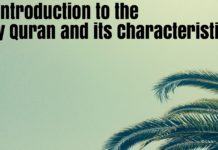Nature In Keats’s Poetry
Arousing quality is the way into Keats’ demeanor towards nature. He looked with kid like pleasure at the objects of nature and his entire being was excited by what he saw and heard. The earth lay before him plowed, spread out with marvels and ponders, and every one of his faculties came to them with joy and satisfaction. Everything in nature for him was brimming with amazement and puzzle—the rising sun, the moving Cloud, the developing bud, and the swimming fish.

Sex has a great time with nature
Table of Contents
Keats’ demeanor toward nature was created as he grew up. In the early sonnets, it was a temper of only arousing delight, an unanalyzed joy in the magnificence of nature. “He had a way”, says Stop-ford Brooke, “of rippling butterfly design, starting with one item then onto the next, contacting for a second the flashing appeal of each thing……He would let things bounce all through the mind not wanting to request that anybody remain and stay with him, however, satisfied with them and his round of life.” His mentality was one of foolish joy and happiness without thought. In the sonnet, ‘I stood to pussyfoot upon a little bill’, the writer flutters starting with one article then onto the next, and sucks charm from each:
… the sweet buds which with an unobtrusive pride
Pull droopingly, in inclining bend aside
Their sparsely leaved and finely tightening stems.
Here are sweet peas, stealthily for a flight
With wings of delicate flush o’er sensitive white,
What’s more, tighten finger getting at all things
To tie them all with small rings;
Where multitudes of minnow show the little heads
Remaining their wavy bodies against the stream
This is a depiction of a late spring’s day. Each object of nature carries enjoyment to the artist and he paints a wonderful picture. Nature is to him a store of joy however there is no mutual relationship between his spirit and the spirit of nature. The most are delighted by the marvels of Nature which have satisfied and excited he detects, and he sings them with unalloyed, negligent satisfaction.
Keats’ affection for nature for the well-being of her own: the physical magnificence of nature
Keats cherished nature for the well-being of her own, and not for any thought that the human brain can add something extra to her with its own operations and goals. He had no hypothesis to show or a good lecture. His verse is brimming with a charm that emerges out of his profound happiness regarding the excellence that he finds in nature and life. “He had grown up neither like Wordsworth under the spell of lake and mountain nor in the gleam of millennial dreams like Shelley”, yet brought up in London and Middle-sex he was “skilled as though by some secretive claim, with an understanding into all the marvels, and compassion for all the life of the forested areas and fields.” Where Wordsworth’s mysticism and Shelley’s intellectualism Nature, Keats communicates her through the faculties. He is mixed with profundities by the shading and fragrance and music in nature. He feels and adores each disposition of the Earth; and “so enthusiastically did he love her with an affection undeniably more concrete and individual than Wordsworth or even Shelley that no other thought encroaches upon his work.” Wordsworth deciphered nature by the tasks of his own demanding soul; Shelley found in nature a noticeable image of the puzzling universe; Keats has no contemplations of religious philosophy, mankind, or power blended with nature.
Keats: Nature is an incredible consoler
This temper of unconstrained bliss changes with the happening to torment and distress in the writer’s life. He has seen his sibling kick the bucket and his affection is bound to disillusionment. The temper of the artist gets grave and inventive, and his poetry towards nature is blended in with distress, which tries to lose itself in delight. Presently there is a profound otherworldly joining between The spirit of the artist and the spirit of nature. Nature doesn’t only satisfy his senses___ she currently dives deep into his soul. In the delight of nature, Keats overlooks his distress. This is the soul that illuminates the Ode to a Nightingale felt the weight of distress in his own personal entire world is loaded with sorrow, But then the songbird likewise on the planet, and the songbird is very image of euphoria. The creative mind of the writer is set to the tune of the winged animal, and he overlooks his distress and songbird in the soul. This is the second when nature, her moon and stars, and blossoms, goes into his spirit, and his soul is converged in nature. Keats and songbirds are one of his spirits that sings in the winged animal, and he sings.
Keats’ ingestion in the Beauty and life of Nature
In the Ode on a Nightingale, there is distress. However, Keats, an untiring admirer of magnificence, would not permit his individual distress to meddle with his quest for excellence. In one of his letters, Keats expresses: “The setting sun will consistently set me to one side, or if a sparrow were before-my window I participate in its reality and pick about the rock“.
He eaters completely into the life of nature, and doesn’t attribute his own sentiments to her. He is totally invested in the transient euphoria and development of things in nature. He goes into the very soul of harvest time season:
Who hath not seen thee oft in the midst of thy store?
Here and there whoever looks for abroad may discover
Thee sitting indiscreet on a storage facility floor.
Thy hair delicate lifted by the winnowing wind;
The artist is completely in the time and with the things of war he composed. He lives completely in the present, and doesn’t think back to the past or forward to what’s to come. In the Ode To Autumn, he inquires,
Where are the tunes of spring?
Ay, where right?
He answers, “Why discuss spring? We are in harvest time.”.
Consider not them, Despite the fact that has thy music as well.
Keats’ embodiment of objects of nature
Like the antiquated Greeks, Keats frequently presents the objects of nature as living creatures with their very own existence. As Leigh Hunt said of him, “he never observed the oak tree without seeing the Dryad.” The moon is Cynthia, the sun Apollo.
Keats’ Kitty gritty perception of Nature
Keats’ perception of Nature is portrayed by minuteness and striking quality. Keats’ eye watches each and every detail and presents it with a developed contact. He has the skill of catching the most basic detail and convincing our consideration. His depictions of nature are along these lines set apart by fine pictorial quality.
Keats’ spiritualist encounters with objects of Nature
Be that as it may, there are enlivened minutes when the current excellence of nature with all its exotic intrigue gives him a temporary vision of a more profound reality. He then in his creative mind goes from the universe of time to the universe of time everlasting. These spiritualist encounters are demonstrated in his. Tribute to a Nightingale. As Keats hears the melody of the songbird, the obstructions of existence appear to disappear away. He has creatively gone through death, flown on the wings of the creative mind to the songbirds interminably. The songbird will be singing while he will end up being a grass.
“At that point, says Middleton Murry, “with a sublime scope of the creative mind, he considers them to be and the fledgling as one. The feathered creature becomes pure melody, and acquires the unfathomable length of time of magnificence.”
“Thou wası not conceived for death, unfading fowl,
No ravenous ages treat the edown.”
The sound of the winged creature is the voice of endlessness: sounding in antiquated days in the ears of rulers and jokesters, of Ruth in tears:
A similar that oft-times hath
Enchanted enchantment casements opening on the froth
Of risky oceans, in faery lands pitiful.
The tribute is a dazzling case of the imagina experience of Keats. Nature removes him from the exhaustion, the fever, and the fret” of the current world to the unending length of time of magnificence spoken to by the melody of the songbird. Here is the most elevated nature verse of Keats where the motivated creative mind of the writer gives him a passing look at unceasing excellence.
Keats’ mentality toward Nature in examination with Wordsworth and Shelley
Every sentimental writer aside from Keats finds in nature a profound significance, moral, good, savvy, or otherworldly. For Wordsworth, Nature is a mother, a medical attendant, a teaching impact. He views it as a living soul. He finds in it the nearness of God. Shelley, as well, finds in Nature Intellectual Beauty. However, while Shelley-intellectualize nature and Wordsworth’s mysticism, “Keats is substance to communicate her through the faculties; the shading, the touch, the aroma, the beating music; these are the things that mix him to his Depths, there isn’t a disposition of Earth he doesn’t adore, not a season that won’t cheer or motivate him.”
Medievalism In John Keats Poetry


























